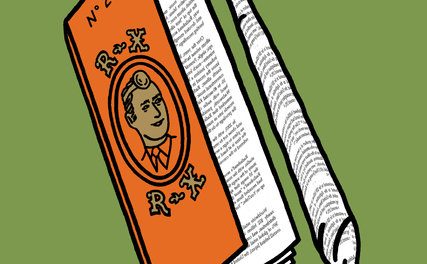Can marijuana prohibition withstand that headline on the front page of the Enquirer? The tabloid has not yet broken the news at the supermarket, but it’s only a matter of time because this is one story that cannot be suppressed or ignored. Everyone in America wants to lose an inch and a half around the waist.
On May 15 the American Journal of Medicine published online a paper by a respected heart specialist, Dr. Murray Mittleman, and colleagues showing that people who are currently using marijuana have smaller waistlines (93.6 centimeters) than those who never used (97.4 cm) or who once used but don’t anymore (97.6 cm). One centimeter = .39 of an inch. The average reduction was an inch and a half —even though pot users consume more calories than non-users.
Compounds in marijuana evidently help people metabolize sugar. Current users were found to have a lower incidence of diabetes; 16%-lower levels of insulin (measured after a nine-hour fast); lower insulin resistance (a condition in which cells don’t respond normally to insulin); lower body mass index; and higher levels of HDL-C (“good” cholesterol).
Mittleman et al analyzed the records of 4,657 adults who had taken part in the National Health and Nutrition Examination Survey (which included a drug-use questionnaire) between 2005 and 2010. Among them were 569 people (12.2% of the total) who acknowledged that they were currently using marijuana. To determine whether marijuana use accounted for this group’s relative thinness, the researchers s controlled for sex, race/ethnicity, age, educational level, marital status, tobacco use, alcohol use, income, and physical activity.
Back in 2003 Mittleman provided talking points to prohibitionists when he published a study indicating that marijuana smoking induced heart attacks. But the wheel of Science turns. The American Journal of Medicine introduced the paper by Mittleman et al with an enthusiastic editorial by Joseph Alpert, MD:
“These are indeed remarkable observations that are supported… by basic science experiments that came to similar conclusions. We desperately need a great deal more basic and clinical research into the short- and long-term effects of marijuana in a variety of clinical settings such as cancer, diabetes, and frailty of the elderly. I would like to call on the NIH and the DEA to collaborate in developing policies to implement solid scientific investigations that would lead to information assisting physicians in the proper use and prescription of THC in its synthetic or herbal form.”
While I was writing this for CounterPunch on Thursday, May 16, Laurence O’Donnell broke the story on MSNBC. Laurence’s “Marijuana as a Diet Drug” segment featured an interview with Mittleman, who came across as very reasonable.
Cannabis May Protect Against Bladder Cancer





